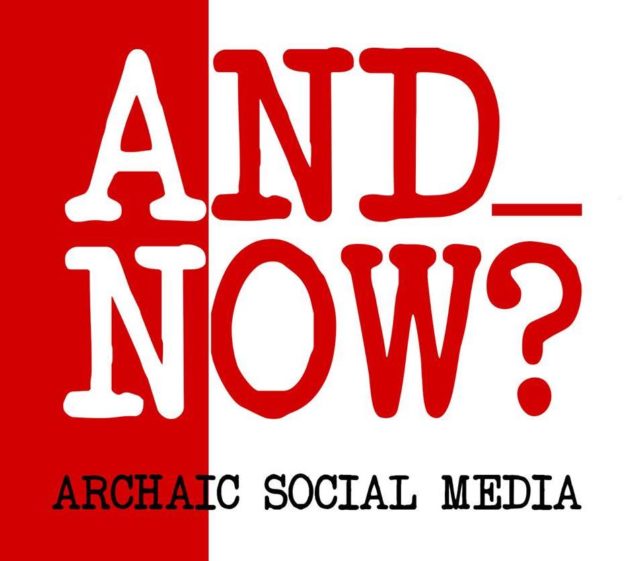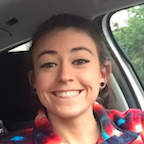
Interning with Anne
Jessica Capó

This internship started with a conversation with Anne where she asked me what it is that I study. When I told her that I studied art, she asked if I was an artist. I replied that I study and practice art, but I do not consider myself an artist. She mentioned that she felt the same way about her writing. This was my first time interacting with Anne, but I already understood so much about the way that she thought.
When I asked what her medium is, she told me this was it. Creating organizations, projects, etc. This was her medium. At first, this was hard to wrap my head around. I am so used to studying artists whose media are plaster, clay, metal, and oil on canvas, but not organizations. How many organizations and projects could she really have created? It turns out, there have been several, and getting to know Anne is the only way to find this out because of how humble she is about her creations.
Anne’s attitude toward creating new projects and tackling anything head on is inspiring to say the least, and I feel it is a reason why this internship has been able to go so far. It has given me, for instance, several opportunities, such as being able to curate my own show, learning how to run a podcast, and even writing and editing a piece like this one to be posted online. She has taught us interns so much about being an artist that we would not otherwise have gained from our classes at the University of Washington.
I have gotten a look into a history where, luckily, my subjects are still around.
This internship turned out to be much more than simple archiving, which the initial description of the position implied. I have had the opportunity to learn skills, such as podcasting, that I have been curious about for quite some time. I have gotten a look into a history where, luckily, my subjects are still around. I have been able to talk to them about the files I have been going through for months on end. Because of our podcasts, I have talked to them about the problems that were occurring at the time and what they felt about it. This is probably one of the most important pieces of the internship to me, because we’re able to create a verbal history of the era.
For many people, the 1980s and 1990s might seem as though they just lived them, but we’re getting to a point where there will be no recollection of the technology they had in those days, like big breathing boxes of computers, dial-up connections, and floppy disks. Being able to talk to individuals who were online so early on and were a part of systems like MetaNet where Arts Wire began is incredibly important. These were some of the pioneers of what arts organizations could have done and built for the community.
It is important to create an oral history, or spoken archive, of such moments in time, especially because of the way this history was built. Almost everything was online or by telephone, and the internet was not yet easily available. It only makes sense to have these memories and moments uploaded for the current internet community to enjoy. It’s hard to imagine a world without these online systems, but that’s just what our interviewees helped us to imagine. What was it like before we were able to type in a simple Google search?
It’s hard to imagine this life, where thinking about typing online just seemed stressful and responses took days rather than minutes or seconds.
Going through the archives, it’s hard to imagine this life, where thinking about typing online just seemed stressful and responses took days rather than minutes or seconds. However, that’s why it’s so important to talk to the people who were there at the time and can recall what was happening then. What was it like to live in these moments where the technology was changing so drastically?
This internship may have turned out to be a lifelong project, since I haven’t had enough time to realize just how I have benefitted from it and what exactly I have learned. The exploration with my fellow interns is still occurring, and I don’t know that there is an ending to it quite yet.

Jessica Capó received an undergraduate degree in Interdisciplinary Visual Arts from the UW School of Art + Art History + Design in June 2017. She was one of two interns who spent the entire year with me. Among other things, she became our “techie,” taking responsibility, for instance, for figuring out how to set up a podcast and then being in charge of setting up the equipment each time and hosting us around her dining table because my office at the School was too echoey.
![]()
Jessico Capó ended her essay with, “What was it like to live in these moments where the technology was changing so drastically?” and I can tell you. I was an early adopter of tech at the school, started the nation’s first, accredited video art course and also bought the school’s first PC (after using the mainframe as an interim step) for computer art. I passed some of this to students in my printmaking classes. Carl Chew, for example, contributed to the Orca Conference, and Norie Sato was And/Or’s video curator. Greg Both was the first MFA holder to have a double major in printmaking and computer graphics. So many stories.
Thanks so much, Bill, for giving us a small window into the early days of video at the UW’s art school and to all the contributions you made to the school and to friends of mine who were your students. Your time there followed mine by a few years…I’m sorry to have missed it.